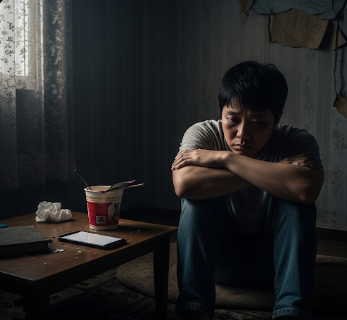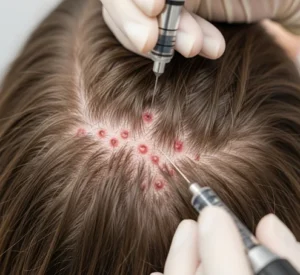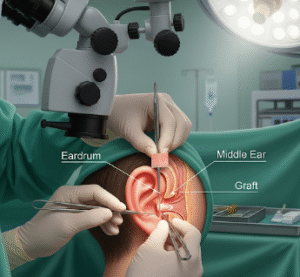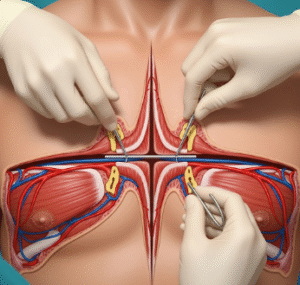➤ Overview
Mental health issues refer to a wide range of cognitive, emotional, and behavioral disorders that affect a person’s ability to function in daily life. Early recognition of signs of mental health problems is critical for timely intervention, better prognosis, and improved quality of life.
In South Korea, mental health awareness has increased, with psychiatrists, psychologists, and counselors providing specialized care. Recognition of symptoms allows for early assessment, treatment, and support systems to prevent escalation or chronicity.
➤ Key Facts
→ Mental health issues can affect anyone regardless of age, gender, or social background.
→ Early recognition and treatment improve long-term outcomes and reduce complications.
→ Mental health disorders may be temporary, situational, or chronic, depending on cause.
→ Common types include depression, anxiety disorders, bipolar disorder, schizophrenia, and stress-related conditions.
→ Signs may manifest in behavioral, emotional, cognitive, or physical ways.
→ In Korea, mental health screenings, therapy programs, and psychiatric care are widely available.
→ Social stigma often delays treatment, making awareness and education crucial.
➤ What is Mental Health Issues?
Mental health issues represent disturbances in mood, thinking, or behavior, often interfering with social, occupational, or personal functioning:
→ Depressive disorders – Persistent sadness, loss of interest, or hopelessness.
→ Anxiety disorders – Excessive worry, panic attacks, or social avoidance.
→ Bipolar disorders – Mood swings between depressive and manic episodes.
→ Psychotic disorders – Schizophrenia or related conditions with hallucinations or delusions.
→ Stress-related disorders – PTSD, acute stress reactions, or adjustment disorders.
→ Neurodevelopmental disorders – ADHD, autism spectrum disorders affecting behavior and cognition.
→ Substance-related disorders – Alcohol or drug misuse affecting mental stability.
Korean mental health specialists use structured interviews, questionnaires, and behavioral assessments to diagnose and classify mental health issues.
➤ What Symptoms are Related to Mental Health Issues?
Signs may appear in behavioral, emotional, cognitive, or physical forms, often overlapping:
→ Persistent sadness or irritability → Indicates depression or mood disorder.
→ Excessive worry or fear → Common in anxiety disorders.
→ Withdrawal from social interactions → Loss of interest in work, friends, or family.
→ Changes in sleep patterns → Insomnia, hypersomnia, or frequent nightmares.
→ Changes in appetite or weight → Increased or decreased appetite without explanation.
→ Difficulty concentrating or making decisions → Cognitive impact affecting daily life.
→ Unexplained physical symptoms → Headaches, stomachaches, or fatigue without medical cause.
→ Mood swings or impulsive behavior → Seen in bipolar or personality disorders.
→ Self-harm or suicidal thoughts → Urgent warning signs requiring immediate attention.
→ Hallucinations or delusions → Psychotic symptoms affecting perception of reality.
→ Substance misuse or risky behaviors → Coping mechanism for underlying mental distress.
➤ What Causes / Possible Causes?
Mental health issues arise from a combination of biological, psychological, and environmental factors:
→ Genetic predisposition – Family history increases vulnerability.
→ Neurochemical imbalances – Altered serotonin, dopamine, or norepinephrine levels.
→ Chronic stress or trauma – Emotional, physical, or psychological trauma.
→ Environmental factors – Social isolation, bullying, work pressure, or poverty.
→ Medical conditions – Thyroid disorders, chronic illness, or neurological conditions.
→ Substance use – Alcohol, drugs, or medications affecting mental health.
→ Major life events – Divorce, bereavement, job loss, or relocation.
→ Personality traits – Perfectionism, low self-esteem, or high sensitivity.
In Korea, mental health professionals often assess multiple contributing factors to create a holistic treatment plan.
➤ When Should I See My Doctor?
Immediate evaluation is recommended if signs persist, worsen, or interfere with daily functioning:
→ Persistent sadness, hopelessness, or withdrawal from activities.
→ Recurrent panic attacks, excessive anxiety, or phobias.
→ Noticeable changes in behavior, sleep, or appetite.
→ Thoughts of self-harm, suicide, or harming others.
→ Hallucinations, delusions, or confusion.
→ Substance misuse affecting relationships, work, or health.
→ Inability to cope with daily stress or responsibilities.
→ Rapid mood swings or unusual impulsive behavior.
Early intervention in Korea ensures access to therapy, medications, and supportive resources, reducing long-term complications.
➤ Care and Treatment
Treatment focuses on symptom management, underlying cause resolution, and lifestyle adjustments:
→ Psychotherapy – Cognitive-behavioral therapy, talk therapy, or counseling.
→ Medications – Antidepressants, anxiolytics, mood stabilizers, or antipsychotics.
→ Lifestyle modifications – Regular exercise, balanced diet, and adequate sleep.
→ Stress management techniques – Mindfulness, meditation, or breathing exercises.
→ Support systems – Family, friends, or support groups.
→ Hospitalization – For severe symptoms or risk of harm.
→ Substance abuse treatment – Detoxification, counseling, or rehabilitation programs.
→ Monitoring and follow-up – Regular evaluation of symptoms and treatment efficacy.
➤ Treatment Options in Korea
South Korea offers comprehensive mental health care, integrating psychiatric, psychological, and community support services:
Diagnosis in Korea
→ Clinical assessment – Psychiatric interviews, symptom questionnaires, and mental status exams.
→ Psychological testing – Cognitive, behavioral, and personality assessments.
→ Medical evaluation – Rule out underlying medical conditions affecting mental health.
Medical Treatments in Korea
→ Pharmacotherapy – Prescription of antidepressants, anxiolytics, antipsychotics, or mood stabilizers.
→ Counseling and psychotherapy – Individual, group, or family therapy.
→ Crisis intervention – Immediate support for suicidal ideation or severe episodes.
Advanced Therapies in Korea
→ Brain stimulation therapies – ECT or TMS for treatment-resistant depression.
→ Integrated wellness programs – Combining therapy, lifestyle coaching, and mindfulness.
→ Community support networks – Rehabilitation, occupational therapy, and social reintegration programs.
Rehabilitation & Support in Korea
→ Education on coping strategies, symptom recognition, and relapse prevention.
→ Follow-up programs to monitor progress, adjust treatment, and maintain mental wellness.
→ Collaboration with schools, workplaces, and community centers to provide ongoing support.













